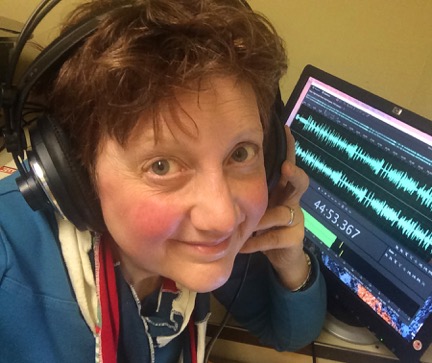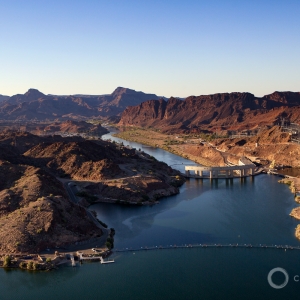This week’s episode of What’s Up With Water covers how states in the American West are coping with a drying Colorado River and a nearly-completed water pipeline project in Israel to combat water scarcity.
Transcript
Welcome to “What’s Up With Water” – your need-to-know news of the world’s water from Circle of Blue. I’m Eileen Wray-McCann.
In the United States, the drying American West is facing the challenge of last month’s dramatic decree from the federal government. The Interior Department ordered the seven states in the Colorado River basin to find a way to cut water use from the troubled river by up to 4 million acre-feet in the next year. The seven states are Arizona, California, Colorado, Nevada, New Mexico, Utah, and Wyoming. A conservation order of this magnitude would have been unthinkable just a year ago. But the basin has continued to dry and this spring its main reservoirs dipped near critical levels. The pressing question now is which states should bear the the largest conservation burden. Colorado’s top water official told Colorado Public Radio that the bulk of that burden should fall on Arizona, Nevada, and California. Becky Mitchell is the commissioner of the Colorado Water Conservation Board, which represents Colorado in interstate negotiations. Mitchell said that the three lower basin states have relied too heavily on Lake Mead and Lake Powell, and have thus over-extracted water from the dwindling river. As she put it, “They’re using more than Mother Nature provides.” The states don’t have much time to negotiate how to significantly reduce withdrawals from the Colorado River. They are supposed to deliver their plan by mid-August.
Arizona faces a significant loss of its Colorado River water supply next year due to the mandatory cutbacks. The cutbacks take effect when Lake Mead is critically low. Arizona lawmakers are considering their options and showed that they are willing to spend money on water for the desert state. Last week, Republican Gov. Doug Ducey signed a bill that will provide over a billion dollars for water supply and conservation projects. The bill includes $200 million for water conservation, a provision that was inserted at the request of statehouse Democrats, according to the Associated Press. The bulk of the spending, however, will be directed at larger infrastructure projects and guided by a state financing authority. The governor has championed ways to expand supply, such as desalination and water recycling. Both would require cross-border collaboration. A desalination project would likely be built in Mexico. A water recycling facility would be located in Southern California. The idea is that these projects would produce water in other areas in exchange for giving Arizona a larger share of water from Colorado River. Any such projects would take many years to develop and would require several billion dollars in additional funds.
Water scarcity is also a top issue in Israel, where the national water company is nearing completion of a pipeline to deliver desalinated water to the country’s largest freshwater lake. It would be the first such project in the world, according to the Times of Israel. The goal is to preserve water levels in the Sea of Galilee, a reserve of fresh water in northern Israel that approached a record low in 2018. Since then, wetter conditions have helped the lake to rebound, but experts foresee a long-term drying trend. The 8-mile pipeline is scheduled to be done by the end of the year. It will link the lake to five desalination plants on the coast. Scientists do not anticipate that the new water source will cause major changes to the lake’s ecology, but they will monitor the process for any ill effects.
And that’s “What’s Up With Water” from Circle of Blue, where water speaks. More water news and analysis await you at circleofblue.org. This is Eileen Wray-McCann – thanks for being here.
Eileen Wray-McCann is a writer, director and narrator who co-founded Circle of Blue. During her 13 years at Interlochen Public Radio, a National Public Radio affiliate in Northern Michigan, Eileen produced and hosted regional and national programming. She’s won Telly Awards for her scriptwriting and documentary work, and her work with Circle of Blue follows many years of independent multimedia journalistic projects and a life-long love of the Great Lakes. She holds a BA and MA radio and television from the University of Detroit. Eileen is currently moonlighting as an audio archivist and enjoys traveling through time via sound.






